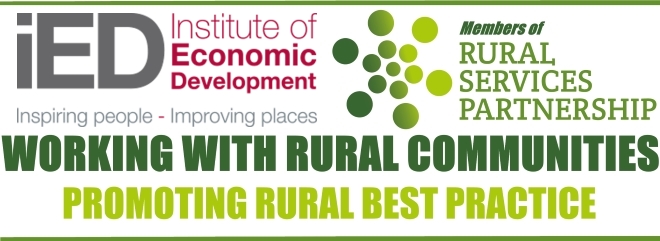T: 01822 851370 E: [email protected]
Visit RSN Survey about life in rural England to find out more.
IED Annual Conference review
January 2019
The Institute of Economic Development (IED) annual conference is always a great opportunity to understand the views of economic development professionals at the end of each year – and provide some professional input into those topic areas likely to exercise the minds of those attending in the 12 months to come. Our conference just before Christmas was no exception, and with a theme of Mind the Gap – Productivity, Place and People, it certainly addressed some of those challenges facing us all.
The day was book-ended by two of the most eminent thinkers and writers on these topics in the UK today. The opening address by Professor Will Hutton explored how some of the challenges around productivity and inequality have been caused by the governance and structure of company ownership and that some of this is unique to the UK. The conference was closed by Professor Philip McCann, probably the UK’s leading economic geographer who set out the institutional reasons and solutions to the nation’s current geographic imbalance.
Conference is not all about huge structural issues, important though they are. The main part of the day engaged delegates in practical thoughts around driving innovation, how a different approach to skills and entrepreneurialism could deliver greater strides in addressing productivity issues, and how delegates might start to develop their Local Industrial Strategies. These practical and practitioner-led sessions delivered insight that we hope to see embedded in the organisations of our members in 2019.
One of the key roles of the IED is to showcase best practice and we were delighted to have extremely strong nominations for our annual awards. We announced that AECOM had won the Greatest Economic Impact award for its Crossrail 2 development impact model; East Riding of Yorkshire Council secured the Most Sustainable Outcome award for its refurbishment and regeneration of the Bridlington Spa complex; Southend-on-Sea Borough Council was awarded the Most Innovative Strategy prize for its work engaging difficult-to-reach families in their community and addressing skills gaps; and Maidstone Borough Council impressed the judges with the impact of its business growth accelerator, The Business Terrace, which scooped the Best Implementation award.
Another highlight of the conference was the award to Arup of the Excellence in Economic Development standard. This is the IED accreditation for quality and experience within an organisation. The standard has also allowed the IED to develop a continuous professional development programme for organisations aspiring to raise the skills of individuals involved in economic development work. We are encouraging more organisations drawn from both the public and private sectors to go for the Excellence in Economic Development standard.
For anyone involved in conference management, it is well known that no sooner has one conference been assessed and put to bed, than planning for the next conference starts. This will be a pivotal year in economic development: policy-makers are likely to have a better clue on the direction that Brexit will take; it will bring a comprehensive spending review; we expect clarity on local government funding with a hope (rather than expectation) that austerity will genuinely be over for this area of the public sector; and linked to all of this will be the announcement on the direction of the Shared Prosperity Fund – delayed from 2018 because of Brexit troubles in parliament – but fundamental to how UK regions will be funded post-Brexit.
Expect all of these items to feature in our 2019 conference, but with regular commentary and insight on them all from the IED as the year unfolds.
Nigel Wilcock is Executive Director of the Institute of Economic Development




